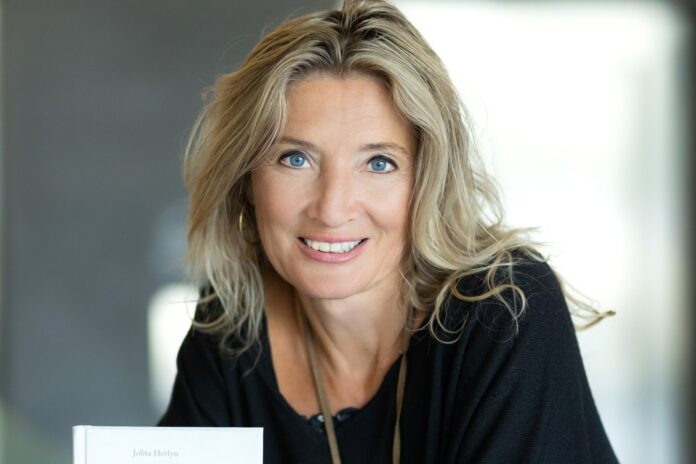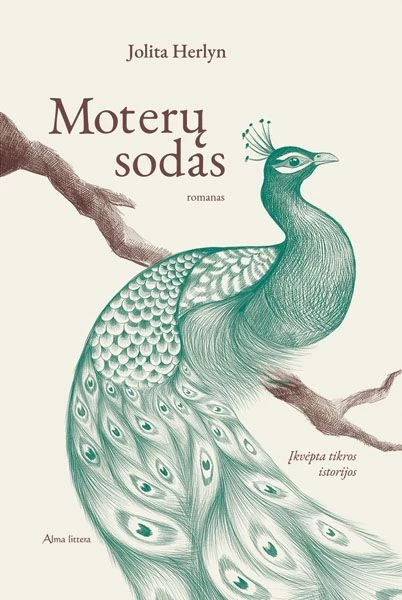
A popular Lithuanian author currently living in Hamburg, Germany, is Jolita Herlyn. In her impressive resume we read that she graduated from Moscow Lomonosov University in 1990 with a degree in philosophy. From 1990 to 1997 she taught Philosophy and Logic at Klaipeda University, then worked in the department of foreign affairs for the city of Klaipėda until 2005, and hosted a TV show called “Proto Aistros” (Brain Passion). From 2006-2009 she managed the marketing department of DnB Nord in Copenhagen before moving to Hamburg with her family in 2010. There she began writing novels in Lithuanian, and has published eleven to date.
Her first, Trys mano vieninteliai (My Three Only Ones) was rumoured to be coming out in English in 2016, but no further information is currently available. Some of her titles are certainly intriguing (Mano vyrai ir jų žmonos – My Men and Their Wives; Svaigulys – Vertigo; Atsargiai – moteris! – Danger: Woman!; Geismo spąstuose – Ensnared by Desire; Angelai neverkia – Angels Don’t Weep). Her latest and most popular yet is Moterų sodas (The Women’s Garden).

One reviewer describes Herlyn’s novels as dessert, to be eaten in three bites, because the reader is powerless to leave it for another day. They are not limited to love and roiling emotions, but touch on other themes as well, leaving the reader inspired by hope.
As to writing in the diaspora, Herlyn has said that in the mirror of another culture, you see yourself and your country in a slightly different way. Her life abroad has enriched her, but also enclosed her in a social bubble. She finds both of those factors most conducive to writing. Compared to her life in Lithuania, she has in essence lived under a type of quarantine for ten years, allowing her to ponder her experiences and make use of them in her novels. Writing encourages her to take an interest in new things and share them with her readers.
An interviewer asked her what it means to be a Lithuanian, living in Hamburg and writing in Lithuanian, and whether living in a foreign environment has changed any aspect of her identity.
She answered that being a Lithuanian in Hamburg is the same as being a Lithuanian in Moscow or Copenhagen. “Being Lithuanian is in my blood,” she said, “like a wine labelled 2005 – the year I left Lithuania… It’s like a filter I look through, which may change with the years, because Lithuania is changing and my new experiences change me. But I still think in Lithuanian, read Lithuanian, and prefer friendships with Lithuanians.”
In another interview she explained that her books have been a bridge connecting her to Lithuania. She may not have begun writing novels if she had stayed there, because at the time, life was so intense. New to the German language and disconnected from a social network, she found that Hamburg became an oasis, where she could nurture her creativity. Herlyn will live and die a Lithuanian, she maintains, because being Lithuanian is an intrinsic part of her self. Her nationality is like an extended family, which she feels especially living in the diaspora. Whether one maintains ties with that family is a personal choice.
Herlyn describes two main themes in her writing – love and emigration. Love always fascinated her – she even taught a course on the philosophy of love. Now she observes how those philosophical theories emerge in daily life.
Thoughts on emigration came from her personal experience. Emigrants everywhere are affected by factors such as climate, language, local customs and traditions, and face similar problems. The feeling of being “foreign” is unavoidable, and evokes existential questons. Her message to her readers is: do not be afraid to live, because despite all its highs and lows, life is wonderful.





























